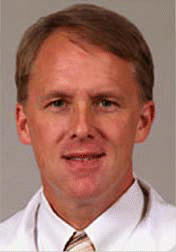Oral Specialists and Other Experts Weigh In
I think it’s probably not a good idea to recommend one bad habit to replace another bad habit, said Terry Day, MD, a head and neck surgeon at the Medical University of South Carolina who has done research on oral cancer. I think there are many other ways to reduce the effect of smoking and lung cancer than switching to another tobacco product.
Erich M. Sturgis, MD, MPH, of the Department of Head and Neck Surgery at the University of Texas M.D. Anderson Cancer Center in Houston, put it just slightly differently. Should we recommend that morbidly obese individuals smoke to help them stop eating? he said, also advising that numerous pharmacologic and nonpharmacologic alternatives to smokeless tobacco are available to help people stop smoking.
For Dr. Day, one big unknown with switching to smokeless tobacco is how this would affect oral cancer risk. If we converted all of the smokers to chewers, I’m afraid our oral and pharyngeal cancer rates would increase, in addition to the number of people who have other oral health-related problems, he said.
His fears are not unfounded. A study published in the Lancet in 2004 by a panel of 19 scientists from seven countries on behalf of the International Agency for Research on Cancer concluded that smokeless tobacco causes both oral and pancreatic cancer in humans (Lancet 2004;5:708). According to Debbie Winn, PhD, of the Division of Cancer Control and Population Sciences at the National Cancer Institute (NCI), smokeless tobacco approximately quadruples the risk of oral cancer.
Although conceding that smokeless tobacco is linked to far fewer diseases and causes less mortality than smoking tobacco, Dr. Winn stressed that smokeless tobacco products are not harm-free.
Harm Reduction
The reason this debate is under way at all among health professionals is the dire consequences of smoking tobacco on health, and the need to find practical, effective ways of reducing their harm. Over the past several years, evidence has suggested that newer smokeless tobacco brands that have low nitrosamine content carry substantially less risk of lung cancer and other diseases associated with smoking. In 2004, an NCI-funded study based on expert opinion found that the median mortality risks relative to smoking with low-nitrosamine smokeless tobacco (LN-SLT) products were estimated to be 5% for total mortality, 2% to 3% for lung cancer, 10% for heart disease, and 15% to 30% for oral cancer (Cancer Epidemiol Biomarkers Prev 2004;13:2035-2042).

Leave a Reply